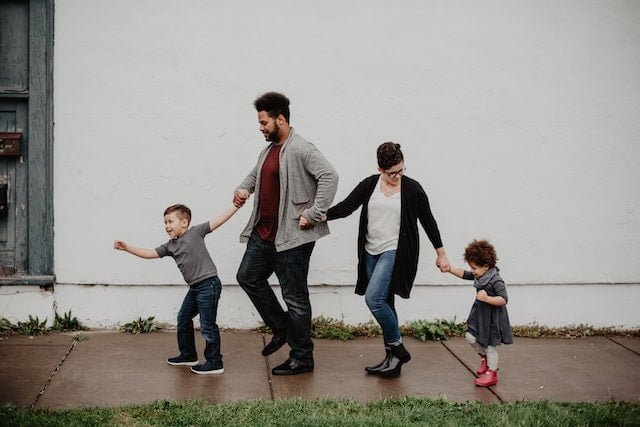
Conflicts happen… How we deal with them makes a tremendous difference however.
Family conflicts are bound to happen, no matter how close-knit the family is. That being said, dealing with these conflicts healthily and constructively is super important if you want to keep your relationships strong and peaceful. So, let’s delve into the topic and explore nine tried and tested tips that can help you effectively resolve disputes within your family. By following these tips, you can foster a better understanding and find common ground with your loved ones, thus promoting reconciliation and harmony.
- When it comes to resolving conflicts within families, nothing can replace the value of open and honest communication. It is important to create an environment that allows each family member to express themselves freely without fear of judgement or reprisal. Active listening is a key aspect of successful communication, as it shows that you are willing to understand the other person’s perspective before expressing yours. By committing to a culture of open communication, you can explore underlying issues that may cause conflicts within the family and collaboratively work towards finding mutually satisfying solutions that benefit everyone involved.
- To effectively handle family conflicts, it is important to cultivate empathy and understanding towards others. Developing the ability to see things from another person’s point of view can help in recognizing the nuances of their decisions and emotions. It is essential to understand that every individual has their own set of experiences and emotions, which are unique to them. Therefore, it is crucial to acknowledge and validate each other’s feelings, in order to create a more conducive and harmonious environment for conflict resolution. By establishing a safe and non-judgmental space that encourages open and honest communication, family members can reach a better understanding of someone else’s point of view.
- When dealing with conflicts, it is essential to maintain a constructive and respectful attitude by focusing on the problems rather than attacking the other person. It is important to avoid hurling accusations or criticism and instead work towards a solution to the specific issue at hand. By adopting a problem-solving approach, both parties can work together to resolve the conflict and prevent the situation from becoming worse. This requires effective communication, active listening skills, and a willingness to understand each other’s perspectives in a non-judgmental way. In this way, you can achieve a more positive outcome and avoid unnecessary conflicts.
- When faced with a conflict, a helpful approach is to seek out common ground between the parties. This involves identifying shared interests or goals that can be used as a starting point for finding a solution. It’s important to look for areas of agreement and work to build upon them. By emphasizing shared values and objectives, a spirit of cooperation and collaboration can be established which can make it easier to resolve the conflict at hand. In order to delve more deeply into this principle, one can explore the underlying psychology and dynamics involved in the search for common ground.
- Collaborative problem-solving involves approaching conflicts as opportunities to find solutions rather than thinking in terms of winning or losing. This approach promotes brainstorming and encourages exploring various options. By involving all members of the family in the decision-making process, everyone has a voice and stake in the outcome, which can lead to more sustainable resolutions. The key to collaborative problem-solving is to build a sense of ownership and cooperation among family members, which can significantly contribute to resolving conflicts in a meaningful and constructive way. In-depth and comprehensive, this paraphrase provides a detailed explanation of the benefits of collaborative problem-solving when managing a issue that requires a problem to be solved between individuals.
- When family conflicts arise, it can be challenging to find a way forward on your own. A possible solution is to seek mediation from a neutral third party who can facilitate the communication and help guide the resolution process. This can include trained professionals, such as counselors or therapists, or trusted family members or friends who are objective and trustworthy. A mediator can provide valuable insights and help navigate sensitive topics and emotions in a peaceful and respectful manner. By taking advantage of mediation as an option for conflict resolution, families can work together to achieve a mutually beneficial outcome and strengthen their relationships.
- When it comes to resolving family conflicts and healing damaged relationships, forgiveness can play a significant role. By releasing pent-up resentment and grudges, a path for reconciliation and progress can be paved. In order to practice forgiveness, it is essential to engage in open and honest dialogue about the issue at hand, as well as express a willingness to work together to rebuild trust and understanding between the family members involved. Emphasizing a non-judgmental and understanding attitude towards those who have wronged us can also facilitate a resolution being reached.
- When it comes to family dynamics, it’s important to establish clear boundaries and expectations. This can help avoid conflicts that stem from a lack of clarity or a violation of boundaries. Take the time to communicate your needs as well as respect the boundaries set by other family members. Defining boundaries can be an ongoing process, so it’s important to be patient and open to feedback. By carefully considering and respecting each other’s boundaries, you can cultivate a much healthier and more harmonious family dynamic that is rooted in trust and mutual respect. To achieve this, it may be helpful to have open and honest conversations about what those boundries might be.
- If conflicts within a family continue to persist, seeking out professional help is a viable solution. Consulting a family counselor or therapist who is experienced in managing family disputes is the way to go. They can provide comprehensive guidance and support and facilitate productive conversations between family members. Furthermore, they can offer in-depth tools and techniques for managing conflicts, enhancing communication, and building a better understanding all around. This step can be the key to finding a long-lasting solution that improves the family dynamics and helps to prevent future conflicts from surfacing.
Conclusion:
To sum up, family conflict is a natural part of life, but it doesn’t have to leave permanent damage. By prioritizing open communication, empathy, collaboration, and forgiveness, families can navigate disputes in a way that strengthens relationships and encourages personal growth. Keep in mind that resolving conflicts requires considerable time and effort from all parties involved. Patience, empathy, and a willingness to find common ground are essential for resolving conflicts and building stronger bonds that will last for a long time. In order to cultivate healthy and positive family relationships, it’s essential to prioritize clear communication, empathy for those involved, and collaboration to find amicable solutions. Even in the midst of conflict, forgiveness and understanding can go a long way in preventing further damage to family ties in the long run.









